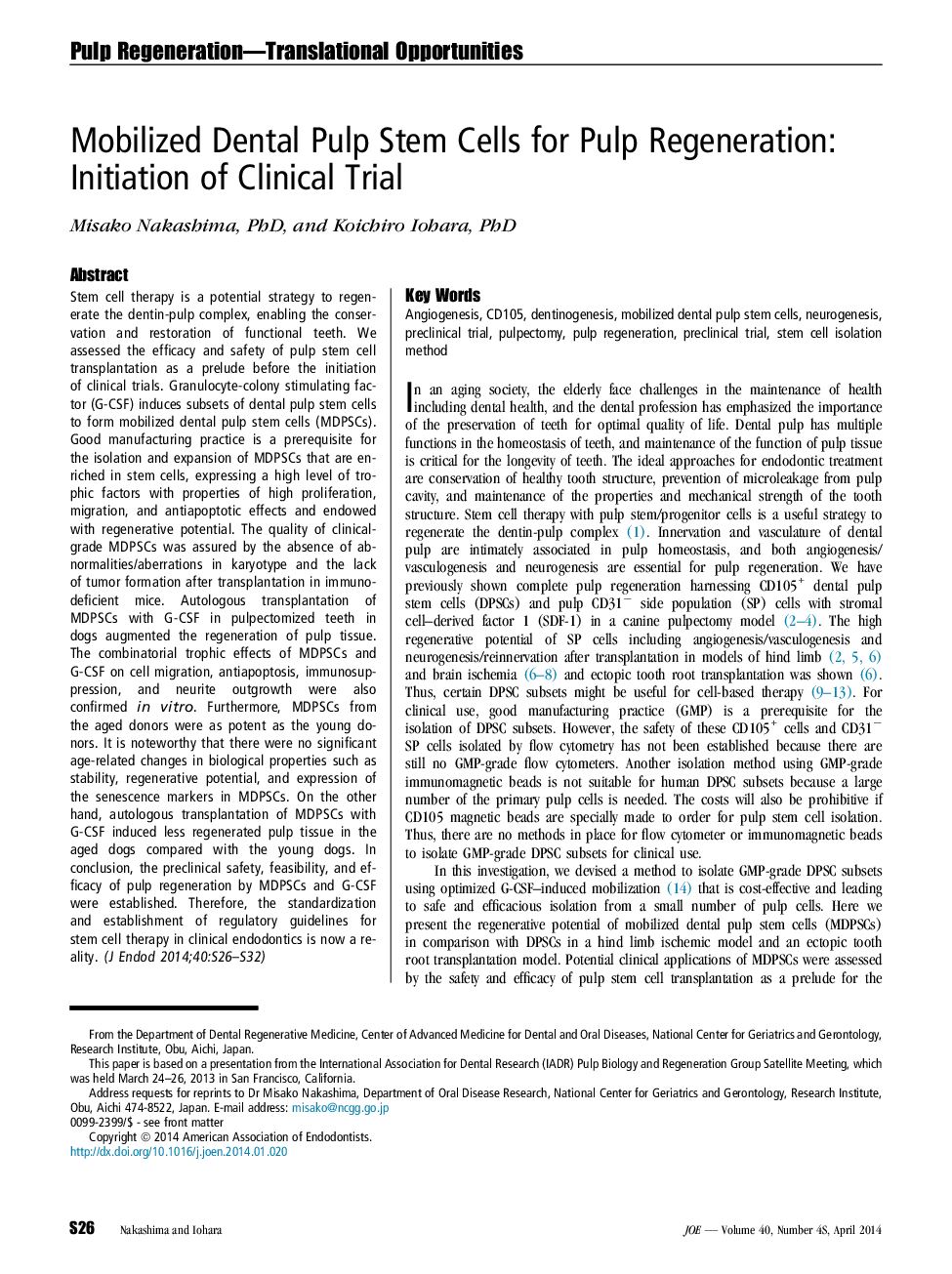| Article ID | Journal | Published Year | Pages | File Type |
|---|---|---|---|---|
| 3146842 | Journal of Endodontics | 2014 | 7 Pages |
Stem cell therapy is a potential strategy to regenerate the dentin-pulp complex, enabling the conservation and restoration of functional teeth. We assessed the efficacy and safety of pulp stem cell transplantation as a prelude before the initiation of clinical trials. Granulocyte-colony stimulating factor (G-CSF) induces subsets of dental pulp stem cells to form mobilized dental pulp stem cells (MDPSCs). Good manufacturing practice is a prerequisite for the isolation and expansion of MDPSCs that are enriched in stem cells, expressing a high level of trophic factors with properties of high proliferation, migration, and antiapoptotic effects and endowed with regenerative potential. The quality of clinical-grade MDPSCs was assured by the absence of abnormalities/aberrations in karyotype and the lack of tumor formation after transplantation in immunodeficient mice. Autologous transplantation of MDPSCs with G-CSF in pulpectomized teeth in dogs augmented the regeneration of pulp tissue. The combinatorial trophic effects of MDPSCs and G-CSF on cell migration, antiapoptosis, immunosuppression, and neurite outgrowth were also confirmed in vitro. Furthermore, MDPSCs from the aged donors were as potent as the young donors. It is noteworthy that there were no significant age-related changes in biological properties such as stability, regenerative potential, and expression of the senescence markers in MDPSCs. On the other hand, autologous transplantation of MDPSCs with G-CSF induced less regenerated pulp tissue in the aged dogs compared with the young dogs. In conclusion, the preclinical safety, feasibility, and efficacy of pulp regeneration by MDPSCs and G-CSF were established. Therefore, the standardization and establishment of regulatory guidelines for stem cell therapy in clinical endodontics is now a reality.
